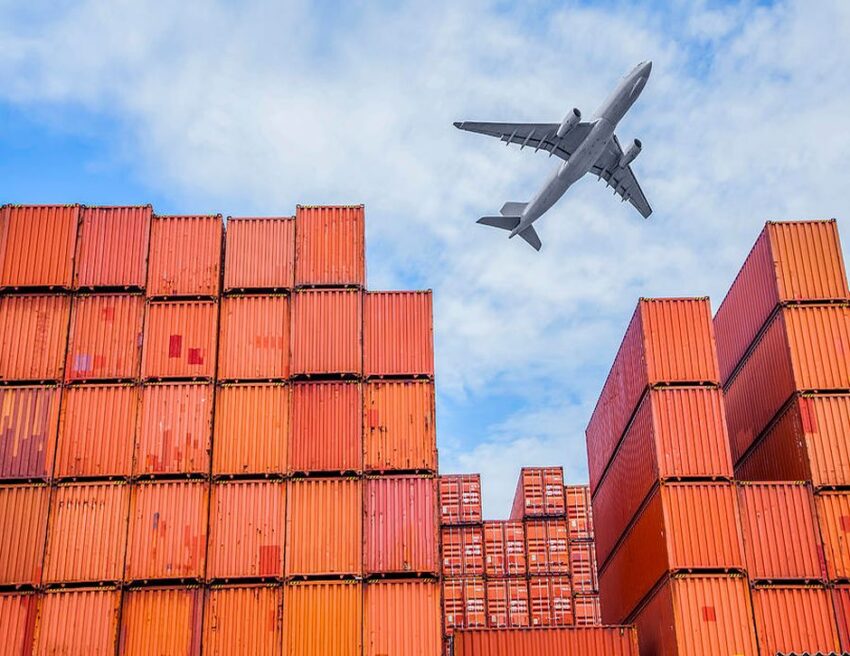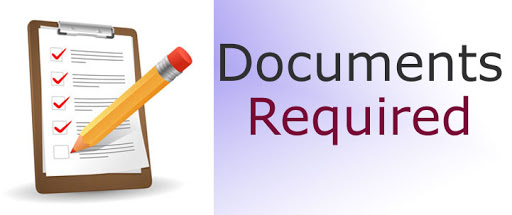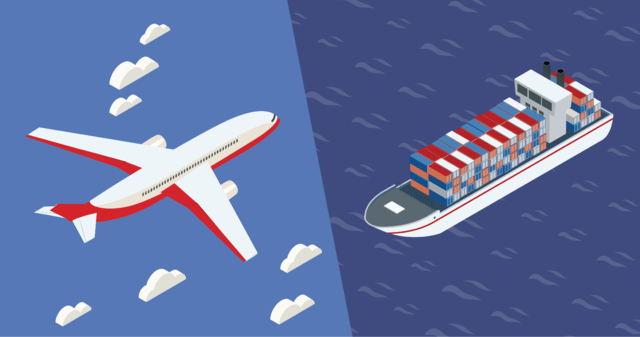- By TOP CHINA FREIGHT
- September 9, 2025
- Air Freight, Shipping
Table of Contents
Many businesses rely on air freight China to France because of its speed, reliability, and flexibility compared to sea or rail freight. However, importers often face challenges such as unpredictable costs, customs clearance complexities, and tight delivery schedules. This guide explains costs, transit times, required documents, and practical techniques so you can manage your shipments with confidence.

Why Choose Air Freight China to France?
Air freight has become increasingly popular because businesses require shorter delivery windows. Although it costs more than sea freight, it reduces delays and ensures stable supply chains.
Speed:
Transit times range from 2 to 7 days depending on origin and destination airports.
Reliability:
Airlines maintain fixed schedules with priority cargo handling.
Flexibility:
Suitable for high-value, urgent, or temperature-sensitive goods.
Moreover, many companies prefer air freight for product launches, seasonal demand, and e-commerce fulfillment where time-sensitive deliveries matter most.
What Are the Costs of Air Freight China to France?
The cost of air freight China to France depends on several variables such as shipment weight, volume, commodity type, and service level. Carriers charge either by actual weight or chargeable weight, which considers volumetric size.
| Weight/Service Level | Average Cost per kg | Transit Time | Best for |
|---|---|---|---|
| Economy (200–500kg) | $4.5 – $6.0 | 5–7 days | Non-urgent bulk |
| Standard (100–300kg) | $5.5 – $7.0 | 3–5 days | General cargo |
| Express (<100kg) | $7.0 – $10.0 | 2–3 days | Urgent shipments |
Key cost drivers include:
- Fuel surcharges and seasonal demand
- Airport handling fees in Shanghai, Beijing, Paris, or Lyon
- Customs clearance charges at both ends
Therefore, understanding pricing models allows shippers to budget accurately and avoid surprises.
How Long Does Air Freight Take from China to France?
Transit time varies depending on the route, airline, and handling processes. Direct flights are faster but cost more, while indirect routes may take longer with stopovers.
| Route Example | Transit Time | Notes |
|---|---|---|
| Shanghai (PVG) → Paris (CDG) | 2–3 days | Direct flights available |
| Guangzhou (CAN) → Lyon (LYS) | 3–4 days | Possible via hub transfer |
| Shenzhen (SZX) → Marseille (MRS) | 4–6 days | May include stopovers |
What Documents Are Required for Air Freight?

Proper paperwork ensures smooth cargo handling and customs clearance. Missing or inaccurate documents often lead to delays and penalties.
| Document | Purpose |
|---|---|
| Air Waybill (AWB) | Main transport contract with airline |
| Commercial Invoice | Declares value of goods for customs |
| Packing List | Provides details of cargo contents |
| Export License (if required) | Needed for controlled items |
| Certificate of Origin | Identifies product origin for duty calculation |
Therefore, always prepare documents early and coordinate with your freight forwarder to avoid shipment interruptions.
How Do Air Freight Costs Compare with Sea and Rail?

Many businesses hesitate between shipping methods. The following table illustrates differences in cost, transit time, and suitability.
| Method | Cost (per kg) | Transit Time | Pros | Cons |
|---|---|---|---|---|
| Air Freight | $5 – $10 | 2–7 days | Fast, reliable | Expensive, weight limits |
| Sea Freight | $0.5 – $1.5 | 25–40 days | Cheapest for bulk | Very slow |
| Rail Freight | $2 – $4 | 15–20 days | Balanced speed/cost | Limited coverage |
While air freight costs more, it secures supply chains for urgent or high-value shipments.
How to Reduce Air Freight China to France Costs?

Group small shipments into one larger lot
Avoid peak seasons like Chinese New Year or holiday periods
Minimize volumetric weight with optimized packaging
Negotiate rates through established carrier contracts
Choose airports with lower handling fees, e.g., Lyon instead of Paris CDG
Case Study: Electronics Shipment from Shenzhen to Paris
A French retailer needed to ship 250kg of smartphones from Shenzhen to Paris for a product launch. The company faced two choices: sea freight at $0.8/kg (35 days) or air freight at $6/kg (4 days).
They chose air freight China to France despite higher costs because:
- The goods were high-value and time-sensitive.
- Launch dates could not be delayed.
- Air cargo offered insurance and tracking options.
Result: The retailer successfully launched products on time, increased sales, and minimized stockouts.
What Are the Main Airports for Air Freight?
In China:
Shanghai Pudong (PVG), Beijing Capital (PEK), Guangzhou Baiyun (CAN), Shenzhen Bao’an (SZX).
In France:
Paris Charles de Gaulle (CDG), Lyon Saint-Exupéry (LYS), Marseille Provence (MRS), Toulouse-Blagnac (TLS).
These hubs provide excellent connectivity with cargo terminals, customs facilities, and storage infrastructure.
What Challenges Affect Air Freight to France?
Despite its benefits, air freight involves challenges:
- Capacity shortages during peak seasons.
- Higher costs compared to other transport modes.
- Customs inspections that may extend transit time.
- Regulatory restrictions for dangerous goods or batteries.
Should You Use a Freight Forwarder?
Working with a professional freight forwarder offers significant advantages:
- Negotiated air freight rates with airlines
- Guidance on customs documentation
- Door-to-door delivery services
- Risk management and insurance support
Conclusion
Air freight between China and France remains the fastest and most reliable shipping option for high-value, urgent, or sensitive cargo. While costs are higher than sea or rail freight, advantages like speed, reduced risk of delays, and strong airline networks make it essential for many businesses. By understanding air freight China to France costs, transit times, and documentation requirements, companies can manage their logistics more effectively and remain competitive in global trade.
Need a Shipping Quote?
If you want expert guidance and peace of mind, our team is ready to assist.
TJ China Freight offers tailored solutions to help businesses of all sizes ship more reliably from China.

FAQs
Q1:How much does air freight cost per kg from China to France?
On average, air freight China to France costs between $5 and $10 per kg. Rates vary based on weight, service type, and seasonal demand
Q2:Can I ship small parcels by air from China to France?
Yes, small parcels under 100kg are accepted. Express air freight offers faster delivery, though costs are higher compared to standard options.
Q3:What items are restricted for air freight to France?
Restricted items include hazardous materials, lithium batteries without proper labeling, flammable goods, and perishable items without temperature controls. Always confirm with your forwarder.
Q4:Is door-to-door air freight available from China to France?
Yes, many freight forwarders provide door-to-door services that include pickup in China, customs clearance, and delivery to your warehouse in France.
Q5:How do I track air freight from China to France?
Tracking is done using the Air Waybill (AWB) number. Airlines and forwarders provide online systems to monitor your shipment in real-time.
